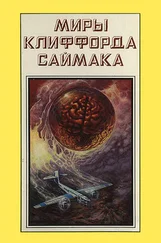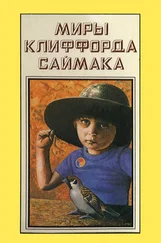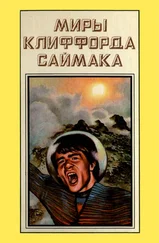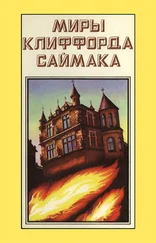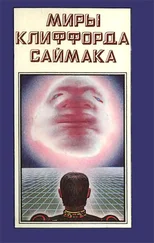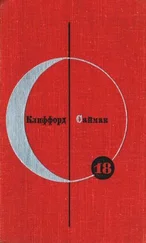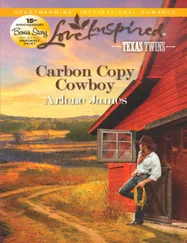Клиффорд Саймак - Carbon Copy
Здесь есть возможность читать онлайн «Клиффорд Саймак - Carbon Copy» весь текст электронной книги совершенно бесплатно (целиком полную версию без сокращений). В некоторых случаях можно слушать аудио, скачать через торрент в формате fb2 и присутствует краткое содержание. Год выпуска: 2010, Жанр: Фантастика и фэнтези, на английском языке. Описание произведения, (предисловие) а так же отзывы посетителей доступны на портале библиотеки ЛибКат.
- Название:Carbon Copy
- Автор:
- Жанр:
- Год:2010
- ISBN:нет данных
- Рейтинг книги:3 / 5. Голосов: 1
-
Избранное:Добавить в избранное
- Отзывы:
-
Ваша оценка:
- 60
- 1
- 2
- 3
- 4
- 5
Carbon Copy: краткое содержание, описание и аннотация
Предлагаем к чтению аннотацию, описание, краткое содержание или предисловие (зависит от того, что написал сам автор книги «Carbon Copy»). Если вы не нашли необходимую информацию о книге — напишите в комментариях, мы постараемся отыскать её.
Carbon Copy — читать онлайн бесплатно полную книгу (весь текст) целиком
Ниже представлен текст книги, разбитый по страницам. Система сохранения места последней прочитанной страницы, позволяет с удобством читать онлайн бесплатно книгу «Carbon Copy», без необходимости каждый раз заново искать на чём Вы остановились. Поставьте закладку, и сможете в любой момент перейти на страницу, на которой закончили чтение.
Интервал:
Закладка:
"Thank you," said the president. "Drop in any time you wish."
On the street outside the bank, the sun was shining brightly.
The shopping centre stretched along the mall and there were people here and there, walking on the concourse or shopping in the stores. A few cars were parked in the lot and the world of this Second Bank looked exactly like the First Bank's world, and if a man had not known the difference….
Good Lord, thought Homer, what was the difference? What had really happened? He'd walked through the door and there was the other bank. He'd walked through a door and found the missing people-the people who had not been living in the empty houses of the First Bank's world.
Because that other world where the houses still stood empty was no more than a show window? It might simply be a street lined with demonstration homes. And here was that second street of houses he'd dreamed up the other night. And beyond this second street, would there be another street and another and another?
He stumbled along the concourse, shaken, now that h realized there really was that second street of houses. It was a] idea that was hard to take in stride. He didn't take it in his stride. His mind balked and shied away from it and he told himself it wasn't true. But it was true and there was no way t, rationalize it, to make it go away. There was a second street!
He walked along and saw that he was near the gate. The gate he saw, was the same as ever, with its expanse of massive iron.
But there was no gateman.
And a car was coming up the road, heading directly for the gate, and it was moving fast, as if the driver did not see the gat
Homer shouted and the car kept on. He started waving his arms, but the driver paid not the least attention.
The crazy fool, thought Homer. He'll hit the gate and…
And the car hit the gate, slammed into it, but there was sound, no crash, no screech of rending metal. There was simply nothing.
The gate was there, undented. And there was no car. The c~ had disappeared.
Homer stalked the gate.
Ten feet away, he stopped.
The road came up to the gate; beyond it was no road. Beyond the gate was wilderness. The road came up and ended and t[wilderness began.
Cautiously, Homer walked out into the road and peered through the gate.
Just a few feet away, a giant oak towered into the air al behind it was the forest, wild and hoary and primeval, and the forest was the happy sound, the abandoned sound of water running in a brook.
Fish, thought Homer. Maybe that brook is where the trout came from.
He moved toward the gate for a closer look and reached o his hands to grasp the ironwork. Even as he did, the forest we away and the gate as well as he stood in the old familiar entrance to Happy Acres, with the gate wide open, with the state highway running along the wall and the road from the development running out to meet it.
"Good morning, sir," said the gateman. "Maybe you ought to move over to one side. A car is apt to hit you." "Huh?" Homer asked blankly.
"A car. This is a road, you know."
Homer turned around and brushed past the gateman. He hustled down the concourse, aiming for Steen's office.
But the office was locked. Homer shook the door. He rapped wildly on the glass. He pounded on the frame. Absolutely nothing happened.
Turning from the door, he stared out across the development with incredulous eyes-the vacant concourse, the empty houses among the trees, the faint patches of shining lake peeking through the clearings.
He jammed his hands into his pockets and his fingers touched the little radiator ornament. He took it out and looked at it. He'd seen it before-not the little replica, but the ornament itself.
He had seen it, he remembered, on the new cars parked outside his office by the people seeking leases. He had seen it on the car that had crashed the gate and disappeared.
He walked slowly to the parking lot and drove home.
"I don't think I'll go back to the office today," he told Elaine.
"I don't feel so good."
"You've been working too hard," she told him accusingly.
"You look all worn out."
"That's a fact," he admitted.
"After lunch, you lie down. And see that you get some sleep."
"Yes, dear," he said.
So it began to fall into a pattern, he thought, lying on his bed and staring at the ceiling. Finally it was clear enough so a man could begin to make some head and tail of it.
It was unbelievable, but there was no choice--one could not disbelieve in it. It was there to see. And if one looked at it any other way, it made no sense at all.
Someone-Steen, perhaps, or maybe someone else for whom Steen was serving as a front-had found out how to build one house, yet have many houses, houses stretching back street after street from the first house, all shadows of the first house, but substantial just the same-substantial enough for families to live in.
Dimensional extensions of that first house. Or houses stretching into time. Or something else as weird.
But however they might do it, it was a swell idea. For you could build one house and sell it, or lease it, time and time again. Except that one was crazy to get hold of an idea that was as good as that and then let someone else make all the money from the leasing of the houses.
And there was no question that Steen was crazy. That idea he had about the shopping centre was completely batty-although, stop to think of it, if one had five thousand houses and leased each of them ten times and had a monopoly on all the shops and stores-why, it would pay off tremendously.
And the bank president's slant on sovereignty had certain angles, too, that should not be overlooked.
A new idea in housing, Steen had told him. It was all of that.
It was a new idea that would apply to many things-to industry and farming and mining and a lot of other ventures. A man could make one car and there would be many others. A man could build a manufacturing plant and he would have many plants.
It was like a carbon copy, Homer thought-an economic carbon copy. And a man apparently could make as many carbons as he wished. Possibly, he speculated, once you knew the principle, there was no limit to the carbons. Possibly the ghostly parade of Happy Acres houses stretched limitless, forever and forever. There might be no end to them.
He fell asleep and dreamed of going down a line of ghostly houses, counting them frantically as he ran along, hoping that he'd soon get to the end of them, for he couldn't quit until he did get to the end. But they always stretched ahead of him, as far as he could see, and he could find no end to them.
He woke, damp with perspiration, his tongue a dry and bitter wad inside a flannel mouth. He crept out of bed and went to the bathroom. He held his head under a cold faucet. It helped, but not much.
Downstairs, he found a note that Elaine had propped against the radio on the breakfast table: Gone to play bridge at Mabel's.
Sandwiches in refrigerator.
It was dark outside. He'd slept the daylight hours away. A wasted day, he berated himself-a completely wasted day. He hadn’t done a dollar's worth of work.
He found some milk and drank it, but left the sandwiches where they were.
He might as well go to the office and get a little work done, compensate in part for the wasted day. Elaine wouldn't return until almost midnight and there was no sense in staying home alone.
He got his hat and went out to where he'd parked the car in the driveway. He got into it and sat down on something angular and hard. He hoisted himself wrathfully and searched the seat with a groping hand to find the thing he'd sat on.
His fingers closed about it and then he remembered. He'd sat on it on that day Morgan had showed up in answer to the ad.
Читать дальшеИнтервал:
Закладка:
Похожие книги на «Carbon Copy»
Представляем Вашему вниманию похожие книги на «Carbon Copy» списком для выбора. Мы отобрали схожую по названию и смыслу литературу в надежде предоставить читателям больше вариантов отыскать новые, интересные, ещё непрочитанные произведения.
Обсуждение, отзывы о книге «Carbon Copy» и просто собственные мнения читателей. Оставьте ваши комментарии, напишите, что Вы думаете о произведении, его смысле или главных героях. Укажите что конкретно понравилось, а что нет, и почему Вы так считаете.



